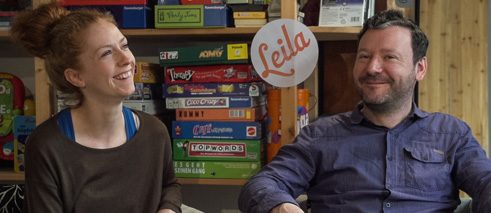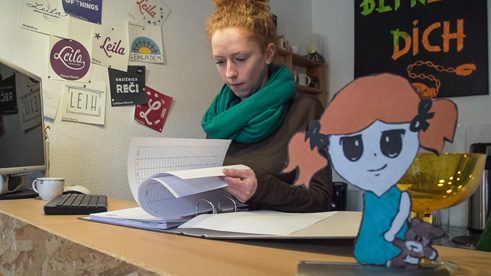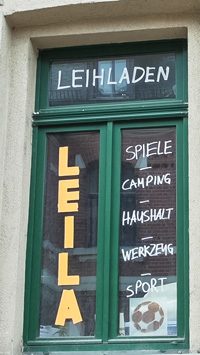Culture of Exchange
Library of Things

Have you ever asked yourself, whether something you rarely use must always be bought and owned? Leila Lending Store in Leipzig is going against the mainstream consumerism by asking the very question.
An average European citizen owns around 10,000 objects. Question is, are these symbols of good livelihood or are they actually reflecting our excessive consumption? The answer usually comes when one needs to move and found countless articles that have been collected over the years; be it a camping tent that has been in your basement since your last adventure half a year ago, or a badminton set that was mostly left to play by itself in your attic. Likewise, souvenirs are also suspected to never have gone beyond your storage room. A glimpse at all what we own, we suddenly realise that only a small part among those is actually being used. Then the question pops up again, “Do we need to buy and own something that we rarely use?”
USE, RATHER THAN OWN
“Taking up space, collecting dust, and swallowing money” are the only things that those dusty unused stuffs do in your basement, according to Lars and Jana. The idea that there must be an alternative to such excessive consumption inspires the couple to open the Library of Things in 2014. Before long, the sharing economy community is born.On the shelves at Leila Lending Store the stuffs are no longer forgotten; the backpacks always get to travel, the electric drills often get to do some works, while travel guides get to help a new adventurer after each journey. “We want the people to think about their consumption”, the couple explains. “We do not need to buy everything but can actually share them.” With a monthly membership of three Euros, one can lend stuffs at Leila’s for up to a week. And to expand the sharing pool, each new member must bring in one object to share with the community. “We want to inspire people, not to hold on to things, but to use them collectively.”
THE LIBERATION PROCESS
Messages for action as “Free yourself!” or “We own our belongings, or are they owning us?” are posted on Leila’s Website.“For me, Leila is like a kind of therapy and should also inspire others to free themselves from their belongings”, Jana mentions about her motivation. “Seeing that people are happy and leaving the store with bright eyes, after finding exactly what they need, makes me happy”, she further describes. But even Jana still have problems in parting from her belongings, especially when they are something memorable that she dearly loves. However, it seems that a solution has been found, “a photograph [of it] in your drawer is enough for you to hold on to the memories”, she smiles. Through this means the memories are stored in her mind and her heart.
LEILA AS A COMMUNITY AND MEETING SPACE
Not only liberation process is in focus here, Lars and Jana also want Leila Store to bring back the sense of community. Sharing stuffs with others not only makes the user happy, but also the ones who decided to part from their belongings and consequently help others in need. Conversation and sense of community can be built up through such exchange.“We think the sense of community is currently missing from our society. We do not know our neighbours and go to buy equipment instead of just borrowing them from others”, they say. The idea is to build a community, where people from different walks of life are brought together. Jana and Lars are convinced that such model is possible, even for a large city like Leipzig.
However, such project does not only exist in Leipzig and Berlin, but also in other European cities. In summer, both of Jana and Lars usually travel to visit these projects. “We take Lending Stores as our destinations”, Lars explains. This year they are going to England, while last year the destination was Slovenia. “One can actually borrow a wedding dress in Ljubljana”, he smiles.
The article was first published on goethe.de/tudoalemao, for translation in Czech refer to: goethe.de/jadu. Translated in English by Nalina Hiranprueck.

